Common Course Content
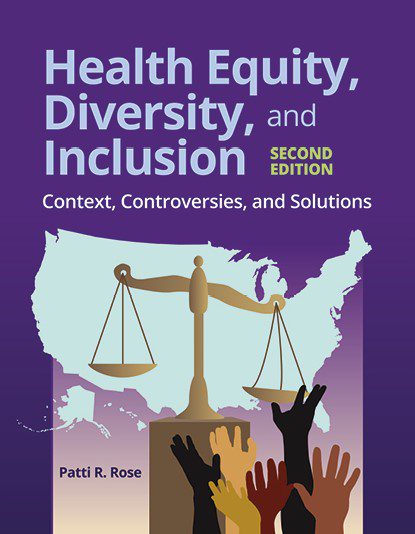
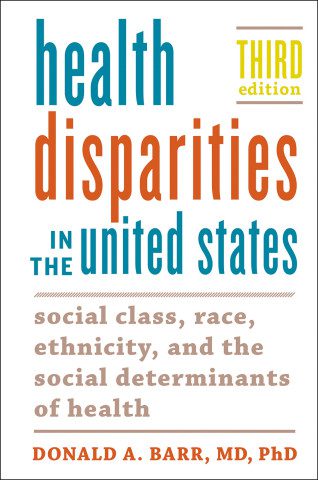
Health Equity Diversity and Inclusion, written by Pattie R. Rose, is a comprehensive guide that examines the critical concepts and practices essential for achieving health equity and promoting diversity and inclusion within healthcare systems. This second edition of the book builds upon the foundation laid by the first edition, providing updated information, resources, and strategies to create a more inclusive and equitable healthcare environment. One of the key focuses of the book is on understanding the impact of social determinants of health on marginalized populations. It provides in-depth information on how factors like socioeconomic status, gender identity, sexual orientation, disability, and geographic location can affect access to quality healthcare and influence health outcomes. By highlighting these disparities, the author empowers healthcare professionals to recognize and address the diverse needs of their patients and communities. Overall, Pattie R. Rose’s Health Equity Diversity and Inclusion (second edition) serves as a comprehensive resource for healthcare professionals, administrators, educators, and policymakers interested in promoting health equity and fostering inclusivity in healthcare settings. With its updated information, practical strategies, and insightful analysis, the book empowers readers to advocate for systemic change, eliminate healthcare disparities, and create a more equitable and inclusive future for all.
“Health Disparities in the United States (Third Edition)” is a comprehensive and timely book written by Donald A. Barr, MD, Ph.D. This book delves into the complex issue of health disparities that persist in the United States, exploring the distinct health outcomes and inequalities experienced by various population groups. Throughout the book, Dr. Barr not only identifies and analyzes the disparities but also discusses potential strategies and policy recommendations to address these inequities. He explores the importance of healthcare delivery systems, health insurance coverage, social determinants of health, and the role of public health interventions in reducing health disparities. Moreover, he emphasizes the significance of culturally competent care, health literacy, and community engagement in achieving health equity. “Health Disparities in the United States” serves as a critical resource for policymakers, researchers, healthcare professionals, students, and anyone interested in understanding and addressing the persistent health inequalities across diverse populations in the United States. By shedding light on these disparities and proposing actionable solutions, Dr. Barr empowers readers to advocate for a more just and equitable healthcare system.
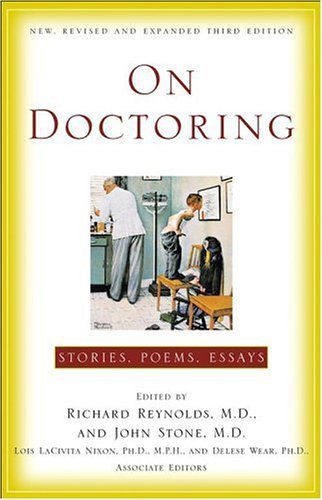
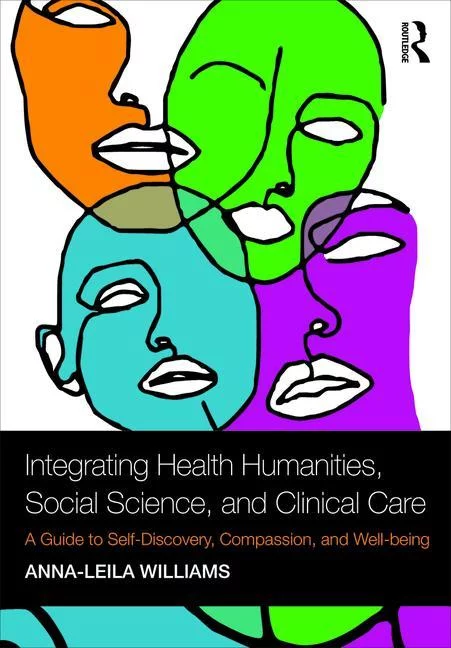
“On Doctoring Stories, Poems, and Essays” is a collection of writings that explore the complex world of medicine and healthcare. This compilation includes a variety of literary forms, such as short stories, poems, and essays, all centered around the experiences, challenges, and ethical dilemmas faced by doctors and patients. Through poignant and thought-provoking narratives, the book delves into the personal and professional lives of medical professionals, shedding light on the intricate relationships between healthcare providers and those seeking healing. With themes that range from compassion and resilience to mortality and the power dynamics in healthcare, this collection offers readers a profound glimpse into the world of medicine and the human condition. The book presents a comprehensive and engaging exploration of the world of medicine, going beyond the clinical aspects to delve into the emotional, ethical, and human elements that shape the practice of medicine. “On Doctoring: Stories, Poems, and Essays” offers a thought-provoking and insightful perspective on the complex world of healthcare, making it a valuable read for medical professionals, patients, and anyone interested in the intersections of medicine, humanity, and literature.
“Integrating Health Humanities, Social Science, and Clinical Care” by Anna Leila Williams is a comprehensive guide to cultivating an integrated and holistic approach to healthcare delivery. The book brings together various disciplines such as health humanities, social science, and clinical care to provide a deeper understanding of the complexities of healthcare and to promote patient-centered care. Williams emphasizes the importance of incorporating the humanities into healthcare education and practice. By incorporating disciplines like literature, philosophy, and art, healthcare providers can develop better communication skills, empathy, and a broader understanding of human experience. The author argues that this integration can improve patient outcomes by fostering a more compassionate and patient-centric approach. Overall, this book is a valuable resource for healthcare students, educators, and practitioners seeking to enhance their understanding of the humanistic and social aspects of healthcare. By integrating humanities and social science into clinical care, healthcare providers can deliver more effective, patient-centered, and culturally competent care.
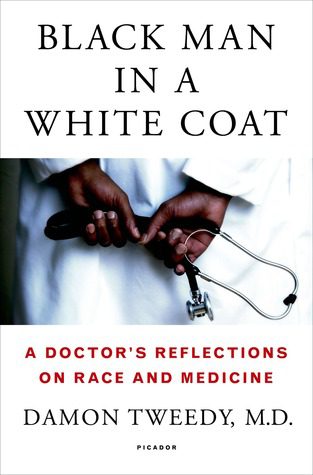
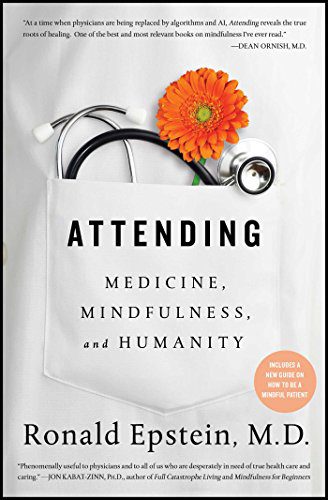
“Black Man in a White Coat” is a gripping memoir written by Damon Tweedy, a Black-American doctor who reflects on his experiences navigating the world of medicine as a racial minority. The book sheds light on the glaring disparities in healthcare and exposes the complex intersection of race, class, and medicine in the United States. Tweedy delves into his struggles with imposter syndrome, constantly questioning his competence and battling internalized racism. He reflects on the extra effort he had to make to prove himself and constantly justify his position as a capable physician. Moreover, the author provides an insightful analysis of how institutional racism perpetuates health disparities, resulting in poorer health outcomes for black individuals. Ultimately, “Black Man in a White Coat” is an illuminating and thought-provoking memoir that forces readers to confront the pervasive racial disparities in healthcare. Tweedy’s honest and heartfelt account serves as a call to action for addressing these systemic issues and striving for equality in medical education and practice.
“Attending Medicine Mindfulness and Humanity” is a thought-provoking and transformative event aimed at incorporating mindfulness and compassion into the practice of medicine. This gathering brings together healthcare professionals, students, and practitioners to explore the intersection of science, spirituality, and humanity in the field of medicine. Participants can expect a range of engaging talks, interactive workshops, and experiential activities that cultivate self-awareness, empathy, and resilience. By emphasizing the importance of human connection, attentive listening, and self-care, this event promotes a holistic approach to healthcare that goes beyond just the physical aspects. Attending Medicine Mindfulness and Humanity is a powerful platform for medical professionals to deepen their understanding of mindfulness practices, enhance their ability to connect with patients, and rediscover the true essence of compassionate care.
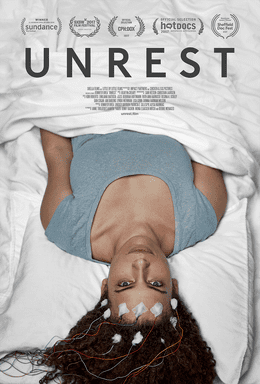
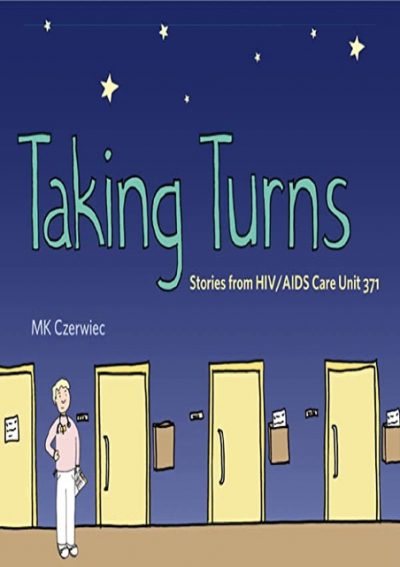
Unrest is a documentary film that follows the personal journey of Jennifer Brea, a Harvard PhD student who suffers from a debilitating illness called myalgic encephalomyelitis (ME), also known as chronic fatigue syndrome (CFS). The film shows how Jennifer and her husband Omar cope with the challenges of living with a chronic condition that is often misunderstood and dismissed by the medical community. Jennifer also connects with other ME patients around the world through Skype and Facebook and becomes an advocate and storyteller for the millions of people who are confined to their homes and bedrooms by this disease. Unrest is a film that raises awareness and compassion for a hidden world of suffering and hope.
Taking Turns: Stories from HIV/AIDS Care Unit 371 is a graphic novel written and illustrated by nurse and artist, MK Czerwiec. In it, she details what it was like to be a nurse during the AIDS epidemic in Chicago in the 1990s. The book, however, is much more than a story about AIDS care during that time. Czerweic tackles patient/provider relationships, boundaries, hospital struggles, the role of art in medicine and healing, and most profoundly: death and dying. Within a quickly emerging and popular new genre for the medical community – graphic medicine – Czerwiec’s novel deserves a spot among the must-reads. Her simple panels, bright with color and minimalistic with line, are the perfect juxtaposition to the powerful and deep themes she addresses. In keeping her illustrations basic, she creates an inviting environment, which draws the reader in and allows the weight of what she is conveying to land. Czerwiec can harness her illustrations for didactic purposes as well, breaking down difficult-to-understand medical science (like that of HIV, pharmacology, and more) into easily digestible and charming graphics.
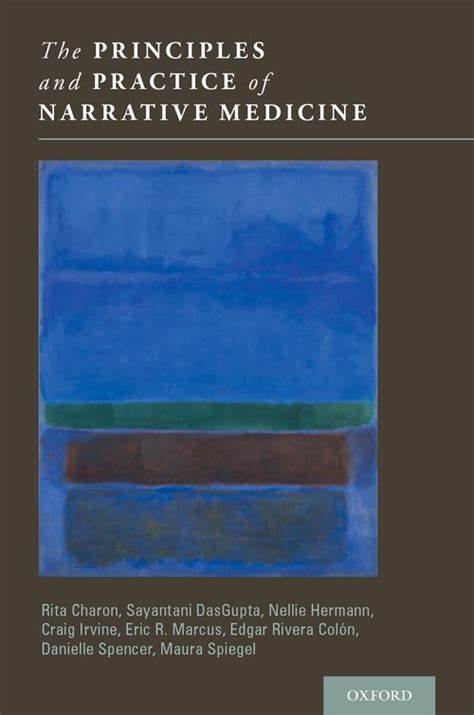
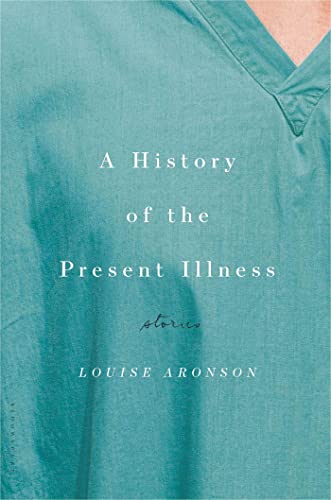
This book is a comprehensive guide to understanding the role of narrative in healthcare. The authors explore how storytelling can enhance patient care and contribute to a more humanistic approach to medicine. She highlights the importance of listening to patients’ narratives and encourages healthcare professionals to consider the subjective experiences of illness and suffering. They offer practical tools and techniques for engaging with patients’ stories and argue for the integration of narrative medicine into medical education and clinical practice. Through the power of storytelling, this literary work serves to advocate for healthcare systems using more empathetic and patient-centered approaches in their practices. This source provides a unique perspective in understanding the profound importance that Health and Medical Humanities studies play in the modern healthcare system.
“A History of the Present Illness” is a collection of fictional short stories written by Louise Aronson. The book explores the realms of medicine, providing an insightful and compassionate portrayal of the lives of doctors and patients. Each story delves into the complexities and challenges faced within the healthcare system, shining a light on the ethical dilemmas, personal struggles, and human connections that are part of the world of medicine. Through her vivid storytelling and accurate depiction of medical situations, Aronson touches upon themes of aging, illness, and the impact of medical decisions on individuals and their families. The collection gives a thought-provoking glimpse into the intricacies of contemporary healthcare, showing both the strengths and flaws of the system while emphasizing the importance of empathy and understanding in the practice of medicine.
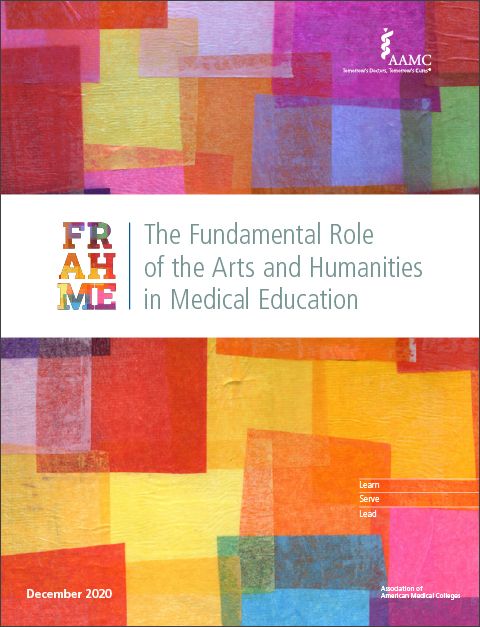
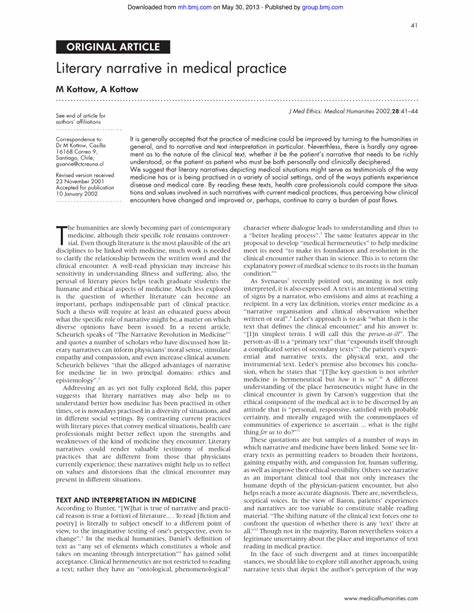
“The Fundamental Role of Arts and Humanities in Medical Education” focuses on the significance of incorporating arts and humanities into the curriculum of medical education. The article argues that a strong emphasis on technical knowledge and scientific skills can lead to a dehumanizing approach in healthcare, resulting in a lack of empathetic and holistic care. It suggests that arts and humanities can cultivate important skills such as critical thinking, communication, self-reflection, and empathy, which are essential for effective healthcare providers. The article also highlights various approaches, including literature, visual arts, and music, through which arts and humanities can be integrated into medical education. It concludes by asserting that embracing the arts and humanities can contribute to a more compassionate, patient-centered, and well-rounded healthcare system.
“Literary Narrative in Medical Practice” by M Kottow explores the integration of literature into medical education and the practice of medicine. Kottow argues that using literary narratives can enhance the understanding of complex medical situations, deepening empathy and ethical reflection in healthcare professionals. The article also highlights the potential value of literary narratives in humanizing patient experiences and aiding in moral decision-making. Additionally, Kottow examines the concept of the “narrative competence” of healthcare providers, emphasizing the importance of communication skills and the ability to construct meaningful patient narratives. Overall, the article discusses the benefits and relevance of incorporating literary narratives in medical education and the potential impact on healthcare delivery.